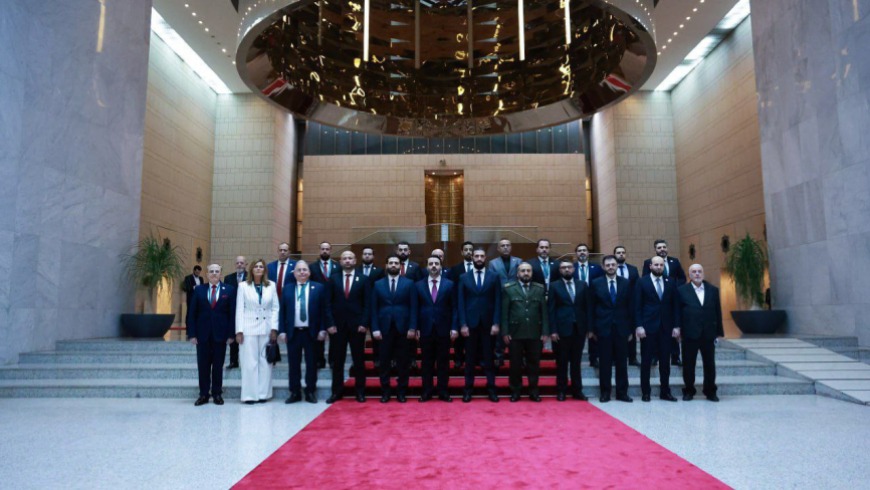As Syria ushers in its first transitional government since the fall of the Assad regime in December 2024, a rare moment of national anticipation has taken shape. Yet this milestone—hailed as the beginning of a new political era—has exposed enduring ideological rifts, competing expectations, and unresolved questions about the nature of the state, the meaning of citizenship, and the framework of governance in post-authoritarian Syria.
The formation of a technocratic government in Damascus signals the end of the caretaker administration that managed the country’s fragile transition in the immediate aftermath of Assad’s downfall. Shaped through months of dialogue, political recalibration, and grassroots mobilisation, the new cabinet represents Syria’s first genuine attempt at governance free from authoritarian shadow since the 1960s.
For many, including columnist Mohammad al-Sukkari, this government is not merely a bureaucratic necessity, but a political achievement—an expression of the revolution’s civic and military victories. Its emergence was preceded by two landmark events: the National Dialogue Conference in February 2025 and the issuance of a transitional constitutional declaration in March, both of which laid the institutional foundations for the new era.
Yet the road ahead remains daunting. The government inherits a nation devastated by war, economic collapse, and social fragmentation. Its challenges are multifaceted—ranging from diplomacy and security to reconstruction and reconciliation—and demand urgent, simultaneous action.
Foreign Minister Asaad al-Shibani has taken on the task of re-establishing Syria’s international relations under a doctrine of “positive neutrality,” seeking to reposition Syria as a site of regional convergence rather than conflict. His efforts to ease sanctions and stabilise the volatile southern front—particularly in the face of Israeli apprehension—represent tentative but strategic steps toward regional reintegration.
Domestically, the technocratic mission faces even greater trials. Ministries responsible for internal governance, service delivery, and national identity must contend with a deeply scarred society. Here, the most critical tasks—justice, memory, and political culture—cannot be addressed through technical competence alone. They require a unifying vision capable of transcending entrenched divisions and reimagining belonging.
A Public Divided, Yet Desperate for Stability
According to al-Sukkari, public sentiment towards the government ranges from cautious optimism to outright scepticism. On one side is the general population—those who endured the war inside Syria—who view the transitional government not as a political project but as a practical necessity. For them, legitimacy is earned through outcomes: safety, basic services, and the promise of stability.
This broad segment of Syrians, wearied by more than a decade of conflict and deprivation, is largely indifferent to debates over quotas or ideological credentials. Their demand is simple: functional governance.
On the other side are opposition figures, intellectuals, and activists—many of whom are based abroad—who have responded with sharper criticism. Their emphasis lies on power-sharing, democratic reform, and institutional safeguards. While their concerns are not without merit, critics argue that some in this camp display a disconnect from the lived realities inside Syria—and, at times, a selective standard. Notably, some of the same voices once open to negotiating with the Assad regime under UN Resolution 2254 now reject a government born out of revolutionary momentum on the grounds of insufficient pluralism.
This contradiction highlights deeper fissures within Syria’s fragmented opposition, and raises uncomfortable questions about the coherence—and credibility—of some elite discourses.
Equal Citizenship: The Missing Foundation
Beneath these political debates lies a foundational question: can the Syrian state be reconstituted around the principle of equal citizenship?
For former opposition figure and writer Bassam Youssef, the answer lies in abandoning inherited frameworks of exclusion. True statehood, he argues, cannot be built on sectarian loyalties or inherited power structures, but must rest on civic equality and participatory governance. For decades, Syrian citizenship was replaced with allegiance—first to party, then to ruler. Syrians became subjects, not stakeholders.
Thus, rebuilding Syria demands more than institutional reform—it requires a redefinition of the social contract. Without a binding commitment to equal citizenship, no government—technocratic or otherwise—can claim durable legitimacy.
Yet the very forces unleashed by the revolution complicate this endeavor. Syria today is a patchwork of traumas, affiliations, and suspicions. In such a landscape, the call for equal citizenship must contend with identity politics, regional pressures, and the lingering fear among minorities of political marginalization.
Unless the transitional government directly addresses these dynamics—through legal protections, inclusive mechanisms, and narrative transformation—it risks perpetuating the very patterns of exclusion it claims to dismantle.
A Moment of Fragile Possibility
Syria’s transitional government embodies a profound paradox: it is both the fruit of revolutionary achievement and the object of revolutionary expectation. It must simultaneously govern a fractured society and attempt to build a state that, in its modern form, has yet to truly exist.
Its success will not hinge solely on policy performance or foreign diplomacy, but on whether it can convince Syrians—from every background—that this state belongs to them.
As one minister declared at the swearing-in ceremony: “Syria has returned to us—this time, not as a dictatorship, but as a homeland of freedom and dignity.” Whether this promise can be realised will determine the shape of Syria’s next chapter.


